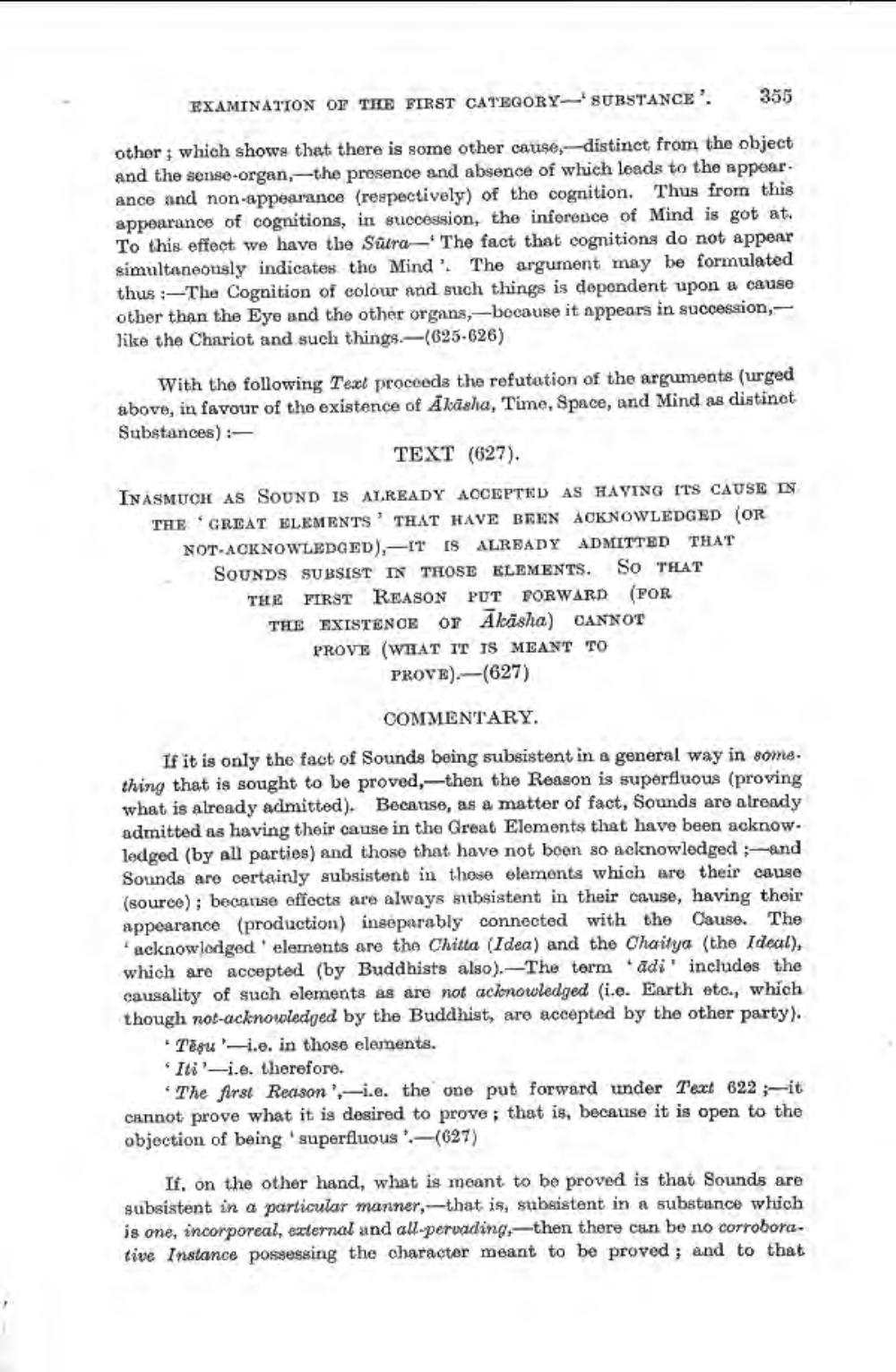________________
EXAMINATION OF THE FIRST CATEGORY
SUBSTANCE.
355
other; which shows that there is some other cause,distinct from the object and the sense-organ, -the presence and absence of which leads to the appear. ance and non-appearance (respectively) of the cognition. Thus from this appearance of cognitions, in succession, the inforence of Mind is got at. To this effect we have the Sütra-The fact that cognitions do not appear simultaneously indicates tho Mind'. The argument may be formulated thus :-The Cognition of colour and such things is dependent upon a cause other than the Eye and the other organs,-bocause it appears in succession, like the Chariot and such things.-(625-626)
With the following Text proceeds the refutation of the arguments (urged above, in favour of the existence of Akasha, Time, Space, and Mind as distinct Substances):
TEXT (627).
INASMUCH AS SOUND IS ALREADY ACCEPTED AS HAVING ITS CAUSE IN THE GREAT ELEMENTS THAT HAVE BEEN ACKNOWLEDGED (OR NOT-ACKNOWLEDGED),-IT IS ALREADY ADMITTED THAT SOUNDS SUBSIST IN THOSE ELEMENTS. SO THAT THE FIRST REASON PUT PORWARD (POR THE EXISTENCE OF Akasha) CANNOT PROVE (WHAT IT IS MEANT TO
PROVE).-(627)
COMMENTARY
If it is only the fact of Sounds being subsistent in a general way in some. thing that is sought to be proved, then the Reason is superfluous (proving what is already admitted). Because, as a matter of fact, Sounds are already admitted as having their cause in the Great Elements that have been acknow. ledged (by all parties) and those that have not boen so acknowledged and Sounds are certainly subsistent in those elements which are their cause (source); because effects are always subsistent in their cause, having their appearance (production) inseparably connected with the Cause. The
acknowledged elements are the Chitta (Idea) and the Chaitya (the Ideal), which are accepted (by Buddhists also).—The term 'adi' includes the causality of such elements as are not acionowledged (i.e. Earth etc., which though not acknowledged by the Buddhist, are accepted by the other party).
* Tēsu i.e. in those elements.
Iti'-i.e. therefore.
* The first Reason',-i.e. the one put forward under Text 622 ;-it cannot prove what it is desired to prove ; that is, because it is open to the objection of being superfluous':-(627)
If, on the other hand, what is meant to be proved is that Sounds are subsistent in a particular manner,--that is, subsistent in a substance which is one, incorporeal, external and all.pervading,—then there can be no corrobora. tive Instance possessing the character meant to be proved ; and to that




